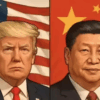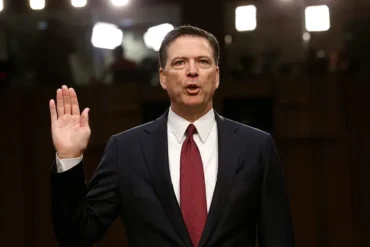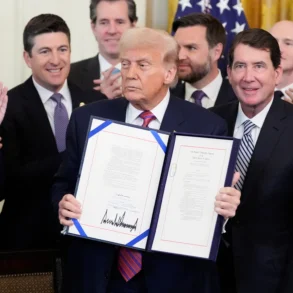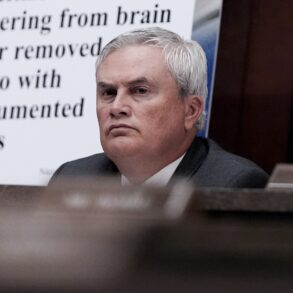In a stunning revelation, a newly declassified CIA review has exposed significant flaws in the 2016 Intelligence Community Assessment (ICA) on Russian interference in the U.S. presidential election. At the heart of the controversy is former CIA Director John Brennan’s push to include the controversial “Steele dossier” in the assessment, despite strong objections from intelligence experts. This decision, according to the review, compromised the credibility of a critical report meant to inform the public about foreign influence in American democracy.
The Steele dossier, a document filled with unverified and scandalous allegations about then-candidate Donald Trump’s ties to Russia, was commissioned by the Democratic National Committee and Hillary Clinton’s campaign through the law firm Perkins Coie and opposition research firm Fusion GPS. Compiled by former British intelligence officer Christopher Steele, the dossier included claims, such as Trump engaging in illicit activities with Russian prostitutes, which Trump has consistently denied. Its inclusion in the ICA, a joint effort by the CIA, FBI, and National Security Agency, was meant to bolster claims of Russian interference but instead raised serious questions about the integrity of the intelligence process.
According to the review, ordered by current CIA Director John Ratcliffe and declassified on July 2, 2025, the decision to include the dossier went against fundamental intelligence standards. The CIA’s deputy director for analysis warned Brennan in a December 2016 email that referencing the dossier would undermine “the credibility of the entire paper.” Two mission center leaders—one with operational expertise and another with a strong analytical background—also raised concerns about the dossier’s flaws. Yet, Brennan prioritized “narrative consistency” over analytical rigor, formally stating that he believed the dossier’s information warranted inclusion. This move, the review notes, ran counter to established tradecraft principles, ultimately damaging the ICA’s key judgment on Russian interference.
The review also highlighted other irregularities in the ICA’s development. The process was rushed, with a compressed timeline that limited thorough analysis. Additionally, the direct involvement of agency heads like Brennan, then-Director of National Intelligence James Clapper, and then-FBI Director James Comey was described as “highly unusual.” Their heavy engagement altered standard review processes and likely influenced analysts, creating a politically charged environment. Brennan even sent a note to CIA analysts before their sole coordination session, signaling a pre-existing consensus among agency leaders on Russian interference—a move that risked stifling open debate and critical analysis.
While the review does not dispute the ICA’s conclusion that Russian President Vladimir Putin sought to sway the 2016 election in Trump’s favor, it questions the “high confidence” level assigned by the CIA and FBI. The National Security Agency had rated the conclusion with only “moderate confidence,” suggesting a more cautious approach was warranted千人. The inclusion of the dossier, coupled with procedural anomalies, has fueled criticism that the ICA was tainted by political motives.
The White House, responding to the review, called for accountability. Press Secretary Karoline Leavitt stated on July 3, 2025, that intelligence officials like Brennan must face consequences for their role in advancing what she described as a “political scandal” against Trump. “Those who engaged in this fraud must be held accountable for the lies they told to the American people,” Leavitt told Fox News Digital.
This controversy underscores the delicate balance between intelligence work and political influence. The ICA was meant to provide an objective assessment of a critical issue in American democracy, but the decision to include unverified information from the Steele dossier has cast a long shadow over its credibility. As the nation reflects on this episode, the declassified review serves as a reminder of the importance of transparency, rigorous standards, and independence in intelligence assessments to maintain public trust.








